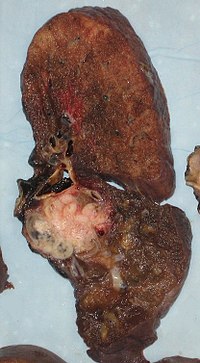 |
| Cubans Celebrate New Rules for Business in Cuba |
CUBANS OPEN BUSINESSES
CUBA- Cuban government has announced they are opening Cuba's closed communist economy to a new breed of Cuban private enterprise. Cuban entreprenours have been transforming their homes, apartmetns, cars and everything else they have into a new business opportunity
even in old run-down sections of Old Havana.All they want is to open thier own business and be their own masters. It's not going to get rich, just to make only a little more than $12-a-month job at a state-run Cuban government institution.
Tens of thousands of Cubanos are chasing their entrepreneurial ambitions in Cuba's year of economic change, hopeful that a sweeping fiscal overhaul announced last year by President Raul Castro is for real. The Cuban leader said the country would lay off half a million state workers by March 31, while granting licenses for a broad, if slightly random, array of businesses. Cuba's new entrepreneurs face towering challenges in getting their enterprises off the ground, including high taxes, a lack of raw materials, an uncertain customer base, labyrinthine bureaucratic rules and limited access to startup capital. Yet, their success or failure will go a long way in determining the future of Cuba's revolution.
The Cuban state now employs 85% of the island's workers and controls 90 percent of the economy in one of the world's last bastions of Soviet-style communism. If the free-market experiment works, the cash-strapped government could shed millions of dollars from its payroll while boosting much-needed tax revenues and creating a new business and consumer class. It could also legalize part of a booming black market that provides everything from sausages to satellite television.
 Image via WikipediaIf this Free market experiment fails, however, this suffering country will have turned hundreds of thousands of people out of their government jobs and into an uncertain future. All of this in the same year that Raul Castro turns 80, and his older brother Fidel is widely expected to step down from his final official post as head of the Communist Party. So far over 80,000 Cubans have received new licenses, joining about 150,000 private sector workers left over from the island's last dabble with capitalism. Government economists say they hope a quarter of a million new entrepreneurs will eventually sign up.
Image via WikipediaIf this Free market experiment fails, however, this suffering country will have turned hundreds of thousands of people out of their government jobs and into an uncertain future. All of this in the same year that Raul Castro turns 80, and his older brother Fidel is widely expected to step down from his final official post as head of the Communist Party. So far over 80,000 Cubans have received new licenses, joining about 150,000 private sector workers left over from the island's last dabble with capitalism. Government economists say they hope a quarter of a million new entrepreneurs will eventually sign up.Almost all the new businesses are small, operating out of homes or on street corners. But the stakes for Cuba couldn't be higher, with the economy weighed down by crippling disorganization, a broken infrastructure, endemic corruption and an enormous labor force that has become accustomed to getting paid very little — and doing very little in return. Among the thousands who have taken the leap into private enterprise are Maria Regla Saldivar, a 52-year-old black belt in Taekwondo who plans to open a gymnasium in the ruins of a destroyed laundromat, and Javier Acosta, who has started an upscale restaurant catering to tourists. There is Danilo Perez, a 21-year-old accountant who has gotten a license to buy and sell bootleg DVDs in Havana's hardscrabble El Cerro neighborhood, and Anisia Cardenas, a seamstress with a license to make clothes.
Many others are giving manicures, painting homes, fixing cars and driving taxis — services on the list of 178 officially-sanctioned private activities. Some of the other opportunities are more obscure, such as fresh fruit peeling. And some are so specific they refer to just two people, like No. 159, which makes it legal to be part of the Amor Dance Duo. Even the Cuban government warned that many of the businesses will fail within a year. And many Cubans say privately that they will wait and see if ventures such as Hidalgo's prosper before jumping into the fray themselves.
But for now, optimism and excitement are the mantra for cuba's new entrepreneurs.
CUBA CUBA SUPERSTORE
To CALL CUBA today



